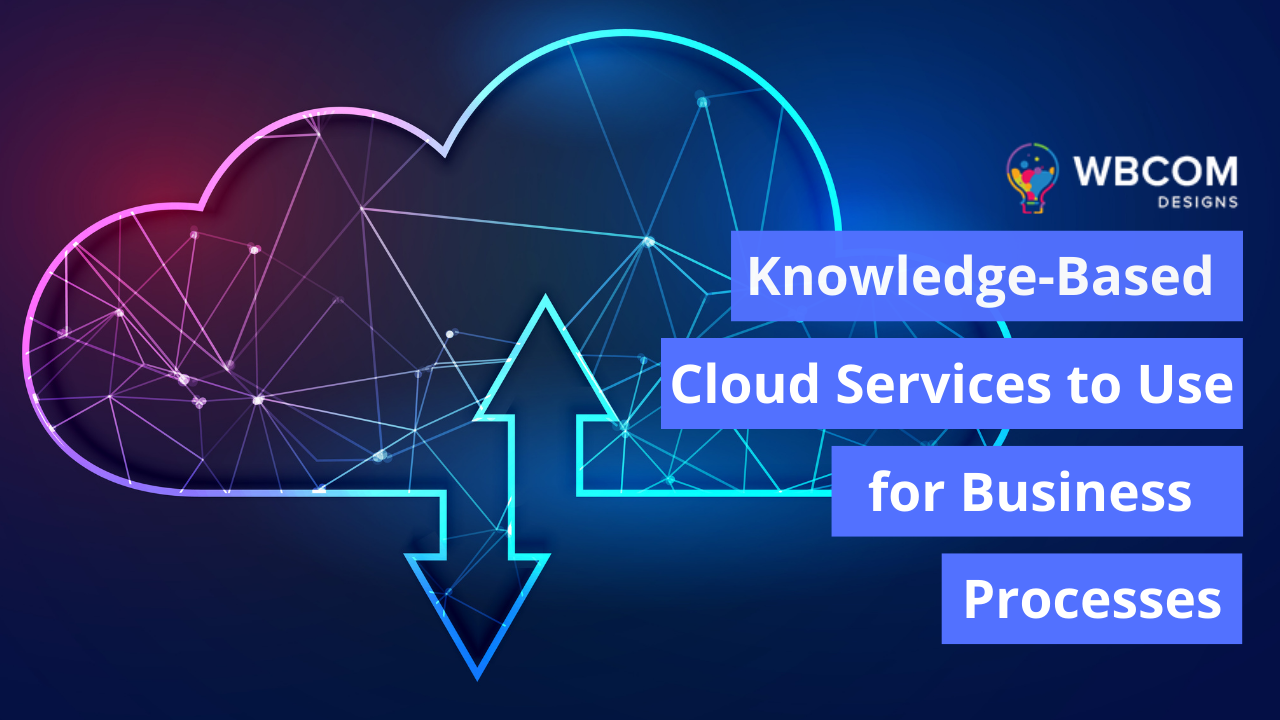Information technology (IT) is offered as a service through the Internet or a specialized network in the form of “cloud computing,” with on-demand access and pay-as-you-go pricing. Virtual desktops, file storage, and even application development environments are just some of the services that can be found in the cloud. This way, we may avoid the costs associated with purchasing, installing, and maintaining hardware and software for our PCs and data centers.
Here are ten cloud-based services for different company functions and processes.
Table of Contents
ToggleProject Management
1. Trello

One of the most widely used tools for managing projects is Trello. It is simple to use, reasonably priced and facilitates work tracking for newcomers and seasoned professionals. If you’re looking for a kanban board, go no further than Trello. It’s worth investigating since it can simplify the construction of both straightforward and intricate projects. Cards, buttons, backdrops, and stickers in various designs are just some options available.
Teams in each department, from sales and marketing to human resources and operations, may tailor Trello to their specific needs and ways of working. With Trello’s custom fields, you can tailor the tool to your team’s workflow by adding fields for things like contact info and other pertinent details to cards. You have complete control over the visual representation of order dates, milestones, and checkpoints.
Also Read: Top 10 Innovative CRM Industry Trends To Pay
2. Asana
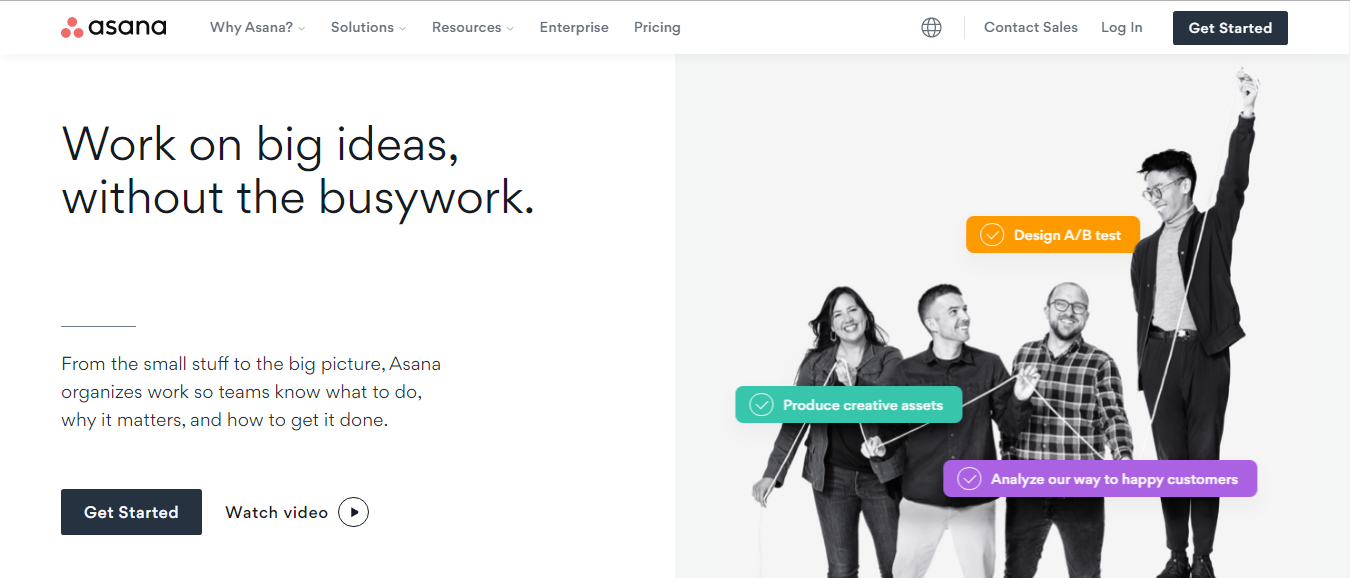
Asana is a Gantt chart application that facilitates the organization of projects of all sizes and types, from the mundane to the very strategic. Asana is a cloud-based project management tool that facilitates collaboration among geographically dispersed teams. Use whatever system works best for you, from simple lists and bulletin boards to elaborate Gantt charts. Asana’s project views are flexible and can be tailored to individual needs.
You may see your tasks in many formats, including Kanban-style cards, a calendar showing when each project is due, or a high-level summary of your workload. The ability to choose between different perspectives provides your team members greater leeway and allows you to involve additional stakeholders.
Long-term projects can’t stay on track and get adequately paid without time tracking and sophisticated project timelines, yet such features aren’t included. Asana stands apart from other project management tools because of its adaptability.
Asana may be used to organize teams, delegate responsibilities, and maintain tabs on immediate and long-term projects. You can quickly adapt this platform to the specific requirements of your business thanks to the wide range of connectors available.
Customer Relationship Management (CRM)
3. HubSpot
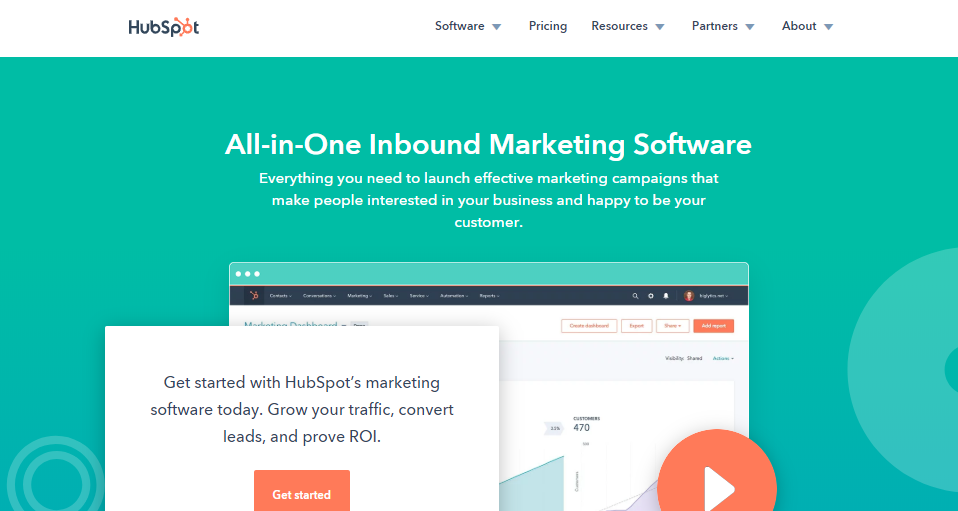
HubSpot is a customer relationship management (CRM) tool in the cloud, useful for businesses of all sizes for lead tracking, lead nurturing, and business metrics analysis. HubSpot makes tracking inbound and outbound leads easy, managing the sales funnel with automation, organizing contacts, and running email campaigns.
Contacts and deals can be tracked, the sales funnel can be viewed in real-time, qualified prospects can be identified, and email marketing can be automated, all with the help of HubSpot CRM.
The HubSpot CRM dashboard provides an interactive, real-time representation of the sales process in visual form. Email, social media, live chat, and phone conversations with customers may all be automatically recorded and saved in a lead-organized timeline within the CRM system.
Salespeople can do more than keep track of leads and opportunities thanks to HubSpot’s customer relationship management (CRM) solutions. The platform may communicate with internal and external systems, including the HubSpot Marketing Hub and HubSpot Sales Hub.
3. Salesforce
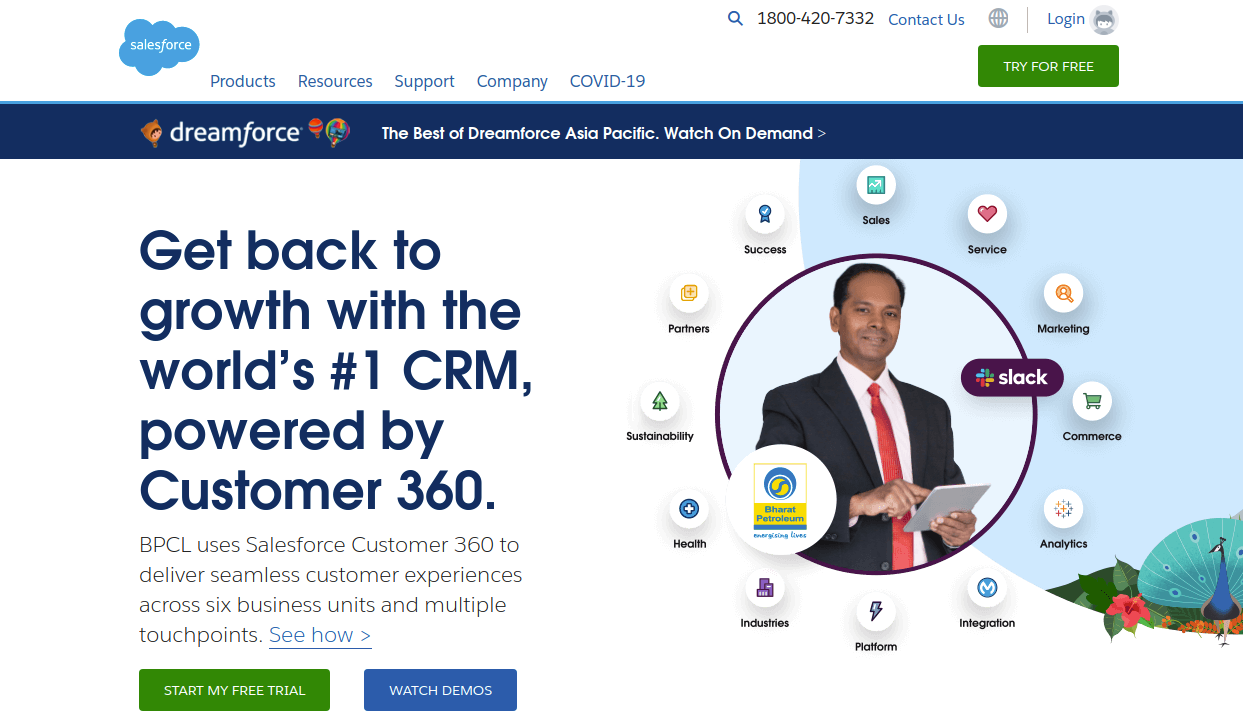
Salesforce is the top customer relationship management platform that may be used for various sales automation purposes. Its highly adaptable nature makes it ideal for growing enterprises. Salesforce also offers excellent lead management. Lead generation automatically triggers a task, but you may also make your own.
Workflow automation allows you to automatically create tasks when new opportunities are added or ensure that specific leads are permanently assigned to the same user. Lead management, marketing automation, and contact management are just some of the customer relationship management features offered by Salesforce.
These programs aid businesses with customer relationship management (CRM), sales lead tracking, marketing campaign management, and post-sale support. Automation of business procedures is now as easy as a few clicks using Salesforce’s intuitive user interface. It also comes with a customer service system that may be tailored to your specific needs.
Enterprise Resource Planning (ERP)
4. Deskera
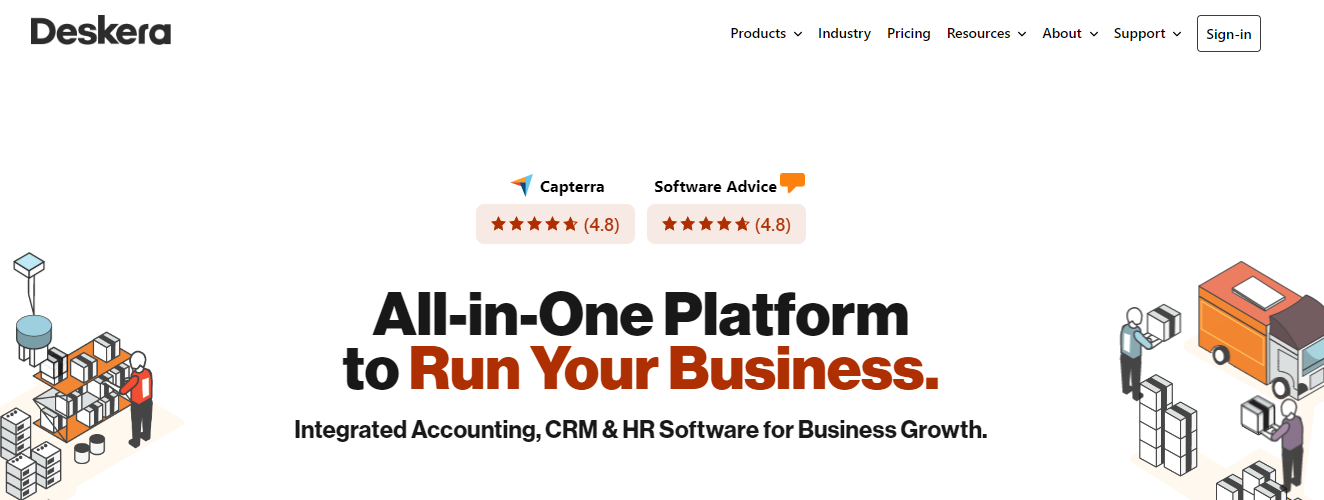
Easy to learn and use, Deskera Books is a helpful tool for any company’s bookkeeping needs. All relevant information, including orders, invoices, bills, receivables, bank balances, and more, can be viewed in one convenient location via the dashboard. Invoices may be made professionally with the help of various available templates. Stripe, Paypal, and Veem are all supported for online payments and bill tracking.
It establishes a network connection with your financial institution so that you may reconcile your accounts. Get an accurate picture of stock levels across your warehouses instantly. With options like dropshipping, backorder, select, pack, and shipping, it’s simple to meet your customers’ demands.
Using bill of materials (BOM) technology, you can quickly and easily assemble complex goods for assembly and then monitor stock levels in different locations in real-time to maximize efficiency. Deskera Books provides an all-inclusive online accounting solution, including Journal Entries, Notes, Financial Reports (Profit and Loss, Balance Sheet, General Ledger, and Cash Flow), Tax Compliance Out of the Box, and Foreign Currency Support.
With Deskera Books, you get a customer relationship management system that can handle all your marketing, customer service, and sales operations in one place. Lead generation via email marketing, transaction closure via sales pipelines, and around-the-clock email after-sale support.
2. NetSuite
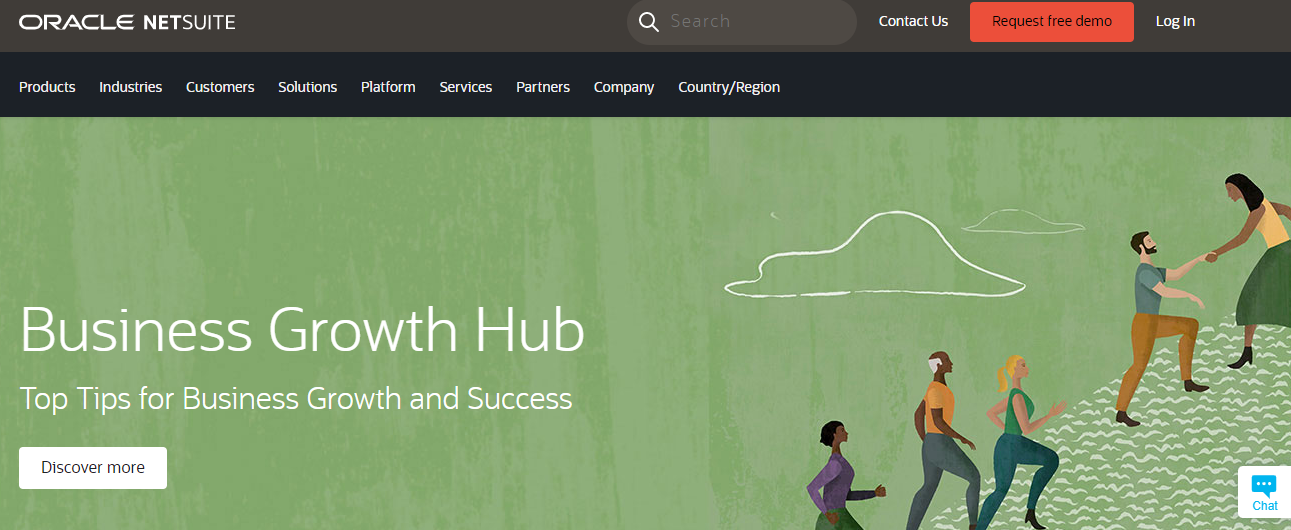
Oracle’s NetSuite is a cloud-based ERP platform that features a full suite of applications, including HR, CRM, e-commerce, and payroll. A software-as-a-service (SaaS) approach allows businesses to expand their operations with minimal investment in new hardware and employees. No matter your business’s size or sector, you may use the system’s many available modules and configuration settings to boost productivity and cut expenses.
Financial performance and cash flow analysis are only two of the many features that can be viewed in their entirety with NetSuite, cloud accounting software. General ledgers, cash management, tax management, accounts receivable and payable, fixed asset management, and payment management are only some of the functions included in the system. You may make your own UIs, generate and distribute branded documents, connect to third-party services, and much more.
Also Read: Top 10 Innovative CRM Industry Trends To Pay
Human Resource Management (HRM)
1. Zoho People
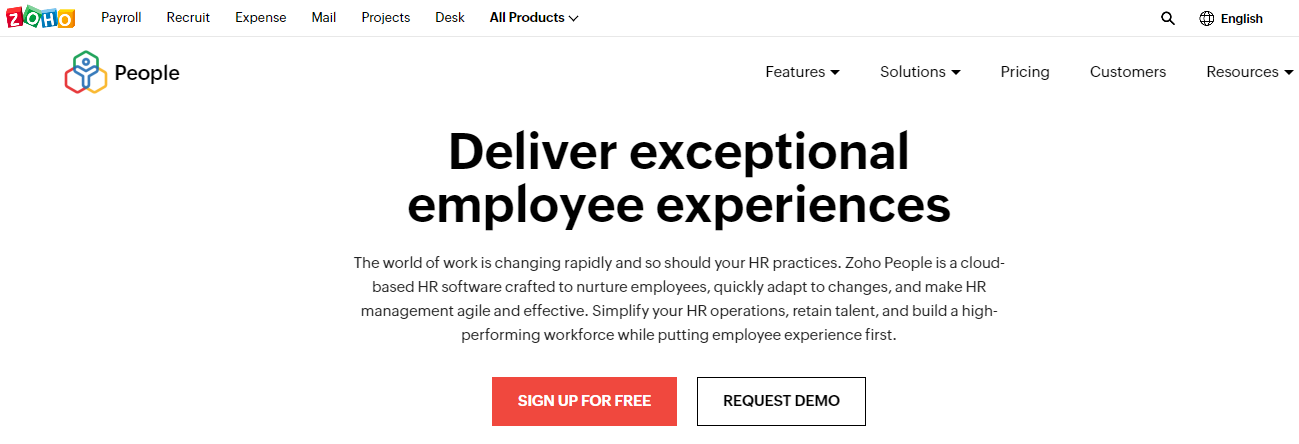
Zoho People is the perfect cloud-based HR solution if you run a business, no matter how big or small. Leave and attendance tracking, time tracking, employee self-service, individualized form creation, and more are all part of the system’s offerings. The system supports businesses’ streamlined leave application process and flexible leave kinds.
A company’s management may see all of its employees in one place, according to the sort of leave they’ve taken, where they work, what they do, and how much experience they have. You may modify the default settings for the five types of feedback (positive, negative, training, observation, and incentives) to better suit your company’s needs.
Recognizing and rewarding employees for their efforts increases motivation and helps keep the best ones around. Zoho People is a learning management system that may be used alongside several other performances and human resources (HR) metrics (LMS).
Also Read: Best CRM Plugins For WordPress To Enhance Your Business
2. BambooHR

BambooHR is an excellent option for online HR software for firms that have outgrown spreadsheets. The BambooHR system is an easy and inexpensive solution for expanding businesses to keep tabs on and manage their employees’ data in a bespoke HR information system (HRIS).
Users may keep tabs on how they feel about each application, notify them of their progress, and work together to make recruiting choices using Bamboo’s integrated applicant tracking system. Any HR group or department may use BambooHR to enhance the hiring process, onboard new hires, manage compensation, keep and analyze employee data, and foster a positive business culture.
Combining an applicant tracking system (ATS) with onboarding resources, BambooHR simplifies every step of the hiring process, from application to new hire orientation. BambooHR allows human resources professionals to manage employee data with in-built reporting and editing features.
Also Read: Top 5 CRM Software to Convert Leads
Messaging Applications
3. Slack
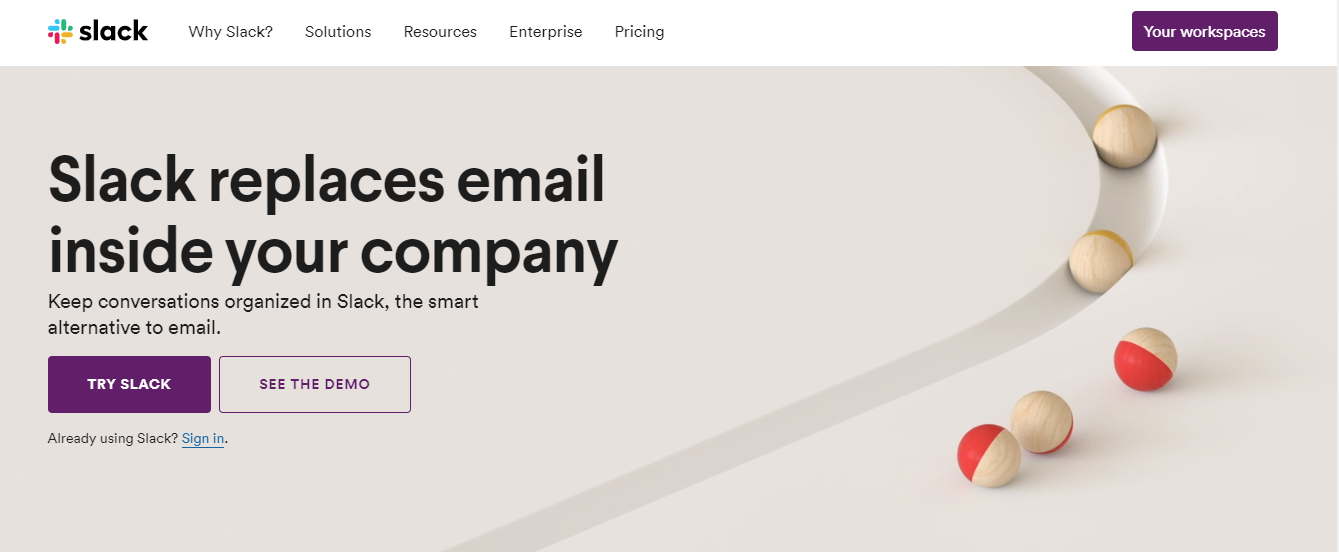
Slack is a workplace messaging platform that allows employees to stay in touch with their coworkers and the technologies they use daily, regardless of their physical location or devices. Teams on Slack communicate and collaborate in “channels,” which may be categorized in various ways. With this, individuals may easily keep up with the news on the most relevant subjects.
Since everyone on the team has access to public channels, it’s much easier for recruits to get up to speed without going through old emails and for marketing to see what designers are working on and what’s on the product team’s roadmap. Slack may be linked to other business applications such as file-sharing services like Google Drive and project management platforms like Trello.
Because of its robust search capabilities and persistent data storage, Slack makes it simple for users to locate specific information across their chat history, channels, and files. Customization options are many, and Notifications may be configured in various ways, including muting for channels that aren’t mission-critical and turning on/off notifications entirely.
Also Read: 7 Advantages and Disadvantages of Using Small Business CRM
4. Skype
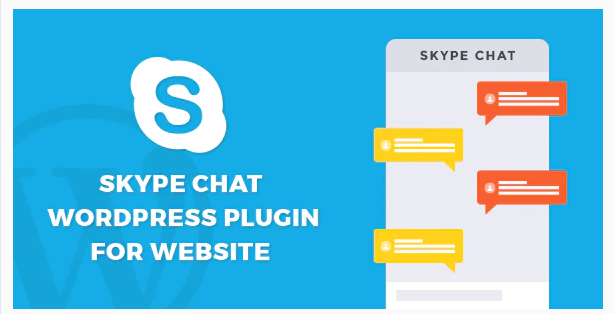
Those needing a no-strings-attached video conferencing option might take advantage of Skype because it is free. This service may benefit individuals and organizations of all sizes since it allows remote team management, enhanced communication, and consumer interaction.
The software’s meeting capacity is limited to 50 users; therefore, it may not be a good fit for corporations of a specific size. Skype also has various premium options that may be more cost effective than traditional phone service, especially when making long-distance or multiple conversations.
Skype is packed to the gills with features that keep improving and are more valuable with each update. Skype, like many teleconferencing companies, allows you to record calls and stores recordings for up to 30 days after the teleconference ends.
Furthermore, the program facilitates the transfer of multimedia data, as well as the facilitation of communication between participants and the sharing of one’s screen. Skype has even included a live translation feature that allows for simultaneous video conversations in up to 10 languages.
Also Read: 5 ways CRM can help your business today

Conclusion
Over the past decade, there has been a sea change in how businesses operate. When looking for cutting-edge tools to streamline business operations, many companies look to the cloud. Companies will continue to rely on cloud-based services for their adaptation, evolution, and growth as the need for in-house resources decreases. Create a needs assessment and select the most appropriate cloud services after considering all of your business’s needs.
Interesting Reads:
5 Best Tools To Run Ad Campaigns

